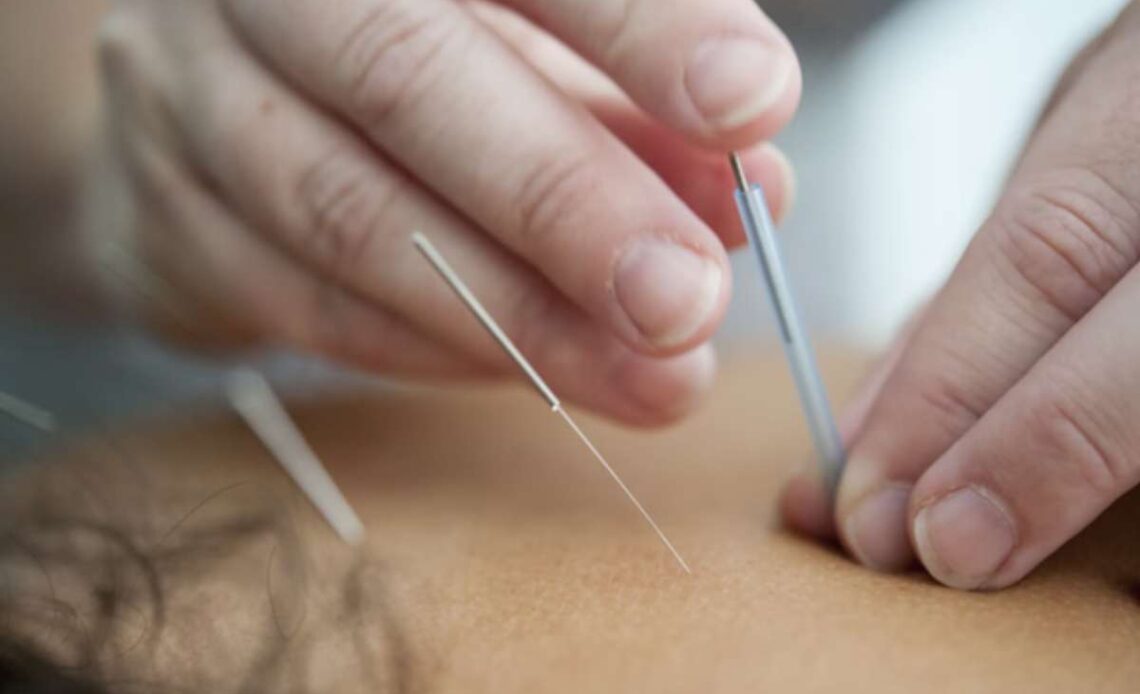
Acupuncture has been part of Chinese healthcare for over 2,500 years, offering support for a wide range of health conditions. This technique uses incredibly thin needles placed at certain points on the body, aiming to help energy, or “chi,” move smoothly along channels known as meridians.
Traditional Chinese medicine teaches that keeping chi balanced is important for feeling well and recovering from illness. It’s an idea that’s drawn curiosity far beyond China, especially as people look for more ways to handle stress, pain, and other stubborn health problems.
Lately, acupuncture is enjoying a renewed spotlight. More people in Western countries are giving it a go, finding it often fits nicely alongside regular medical care. From easing pain and supporting mental wellbeing to even helping with fertility, there’s a steady rise in interest. Health centres like the CU Anschutz Health and Wellness Centre have responded by including acupuncture in their line-up, making it easier for anyone curious, whether you’ve tried it before or are just stepping in for the first time.
Understanding Acupuncture
Acupuncture finds its roots in traditional Chinese medicine, which sees the body as a web of energy channels called meridians. Practitioners insert very fine needles into particular points along these channels, aiming to get the flow of energy, or “chi,” moving freely again. It’s thought that chi flows through 12 main meridians. If things get blocked, you might end up with pain or illness. The needles are placed with skill to clear out these blockages so chi can travel smoothly, helping to relieve symptoms.
The idea of meridians is a big part of what makes acupuncture tick. According to this tradition, a steady flow of chi means your body can work at its best, keeping you feeling healthy. By choosing points linked to different health concerns, acupuncture uses these energy channels to support the healing process.
Many people are looking to acupuncture even outside its traditional setting, especially as some modern research highlights links between these ancient ideas and scientific theory. While classic Chinese medicine is all about keeping your chi balanced, Western medicine offers its own explanations for how acupuncture works, such as how it might stimulate nerves or ease pain. Looking at both viewpoints gives us a larger picture of why acupuncture continues to attract interest from all over the globe.
Physical Health Benefits
Pain Relief
Acupuncture often gets a nod for its pain-busting abilities, whether you’re nursing an old injury or wincing from fresh discomfort. People have found genuine relief through this time-tested practice, and there’s some interesting science that explains how it helps turn down the dial on pain.
For starters, acupuncture can lift your pain threshold by increasing natural chemicals in your body, such as beta-endorphins. Think of these as your built-in painkillers, quietly going about their business to soothe aches. Acupuncture also gets the deeper parts of the brain, especially those involved in managing how pain feels, working in your favour.
But it doesn’t just work on the brain. The moment a needle is placed, it sparks the release of a neuropeptide called CGRP, which helps widen blood vessels at the site. More blood flow means more oxygen and nutrients reach the area, speeding up the healing process.
Another bonus comes from how acupuncture interacts with your nerves. By stimulating certain nerve fibres, it reduces how sharply the spine responds to pain signals, changing the way discomfort is processed before it reaches your awareness.
Acupuncturists will also focus on muscle knots, known as myofascial trigger points, which are often behind sore spots. A needle placed here can help the muscle let go and allow blood to circulate better, easing tightness and the pain that comes with it.
All of these actions add up, offering people a supportive, natural option alongside other pain treatments.
Treatment of Specific Conditions

Acupuncture is gaining wider acceptance for its ability to help with a surprising range of health issues. According to the World Health Organisation (WHO), acupuncture has been shown to help with over 43 medical conditions. Some of the most commonly managed ones include arthritis, headaches, and nausea. Rheumatoid arthritis, osteoarthritis, and fibromyalgia – that stubborn joint and muscle pain that never seems to give up – often show genuine improvement after acupuncture sessions, with many people reporting less pain and greater ease moving around. In addition, acupuncture may support those managing chronic fatigue syndrome, expanding its potential benefits for individuals facing persistent tiredness and low energy.
If headaches or migraines are making day-to-day life a struggle, acupuncture might offer welcome relief that doesn’t involve reaching for tablets. Many people find that regular sessions lead to fewer and less intense headaches, which can make a big difference when you just want to get on with your day.
Nausea is another area where acupuncture comes in handy. Whether it’s caused by surgery, morning sickness during pregnancy, or challenging treatments like chemotherapy, acupuncture has helped many people settle their stomachs without using more medication. For these reasons, acupuncture is often included as part of a broader healthcare plan that puts patient comfort and recovery first.
Mental and Emotional Health Benefits
Acupuncture can provide genuine relief for your mind and emotions, helping to turn down stress and bring calmness when life feels overwhelming. During a session, the needles are used to signal your nervous system to shift gears, moving you out of the frantic “fight or flight” mode and into a restful, restorative state. This is often when your mind starts to feel clearer and the weight of anxiety begins to lift.
The positioning of the needles isn’t random; practitioners select the spots that support better regulation of key mood chemicals and hormones. With this boost, many people find their mood steadies and worries are less likely to spiral.
A major reason acupuncture appears to help with mental well-being is its support for the body’s own balancing act—keeping everything ticking along as it should. By encouraging energy, or chi, to move smoothly, acupuncture aims to help you find your emotional balance again.
With each session, the body releases feel-good chemicals like endorphins, the same ones that can make you feel content after a long walk or a hearty laugh. As a result, acupuncture can be a strong ally alongside other approaches to stress and anxiety, offering a natural way to support mental and emotional health.
Safety and Accessibility
Acupuncture is considered a safe option for most people, largely because the needles used are incredibly thin and usually cause only mild sensations. Unlike the needles you’d encounter for vaccinations or blood tests, acupuncture needles are so fine that their insertion is typically barely noticeable. To put it into perspective, you could fit 16 acupuncture needles inside the eye of an ordinary pin.
The chance of having a bad reaction is quite low, which is one reason so many find acupuncture appealing as an addition to their health routines. All needles are single-use and sterile, giving you extra peace of mind about hygiene. If any side effects do come up, they tend to be mild, such as light bruising or a quick spell of dizziness—mainly affecting people who are naturally sensitive to needles.
More people than ever have access to acupuncture, thanks to its arrival at health and wellness centres like CU Anschutz Health and Wellness Centre. These places offer appointments to all sorts of people, whether you’re a member or just popping in for a single session. Its growing presence within mainstream healthcare owes a lot to the evidence supporting its benefits for both mind and body, as well as how easily it can fit alongside other treatments. This means trying acupuncture is now easier, whether you’re looking for a main approach or simply want another way to manage your health.
Maximising the Benefits of Acupuncture
Acupuncture works even better when it’s part of a bigger plan for your health, rather than going it alone. Mixing acupuncture with treatments like chiropractic care, massage, gentle movement practices like Tai Chi or yoga, and some good advice on eating well, can really turn up the gains for your whole body and mind.
Each one does its bit. So, while acupuncture calms stress and tackles pain, Tai Chi or yoga can boost how flexible and steady you feel, creating a proper foundation for overall wellness—not just fixing what hurts, but helping your body work at its best.
To make sure you’re getting the most from your acupuncture sessions, it matters who you see. Qualified acupuncturists have completed long and thorough training, so they know exactly where and how to place those fine needles safely. This expertise means they can adapt their approach to suit your unique situation, selecting points and methods that fit with what you need right now.
It’s also worth mentioning that visiting a professional keeps things safe and hygienic, helping you avoid unwanted side effects and making the entire experience more positive. If you’re looking to get the best out of acupuncture, a certified practitioner is the best place to start.
Reflections on Acupuncture’s Contribution to Health and Wellness
Acupuncture has caught the attention of people looking to support their health without always turning to medication. Whether you’re dealing with stubborn aches, tension headaches, or the upset stomach that often comes with chemotherapy, acupuncture steps in as a helpful companion. The fine needles used in sessions encourage your body to release its own pain-busting chemicals like beta-endorphins, making pain management feel a bit more natural and less reliant on pills.
But the benefits don’t stop at the physical. Acupuncture gives your mind a well-earned break too, helping you switch from that familiar stressful buzz to a calmer, more balanced state. Many people find their mood steadies and stress levels drop, which can be a real game-changer for emotional resilience and daily coping.
If you’re thinking about putting together a health plan that covers more than just the basics, acupuncture offers extra support. It combines well with standard medical care and brings a holistic touch, making self-care more complete. As more wellness centres offer acupuncture, it’s becoming easier to add this practice to your routine and experience the benefits for yourself.
Also Read: Why Detox Alone Isn’t Enough—What Your Brain Needs to Actually Heal
